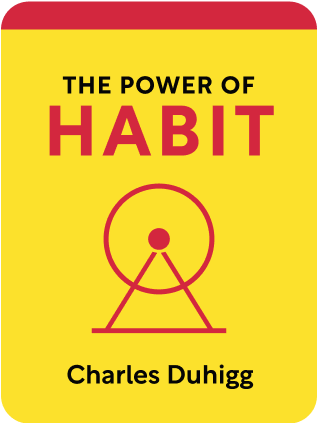

This article is an excerpt from the Shortform book guide to "The Power of Habit" by Charles Duhigg. Shortform has the world's best summaries and analyses of books you should be reading.
Like this article? Sign up for a free trial here .
What does it mean to have a gambling habit? Is it possible to break a gambling habit?
A gambling habit is an addiction and it can be very difficult to break. But like other habits, it is possible to break a gambling habit.
Read more about what it means to have a gambling habit.
Breaking a Gambling Habit
Angie Bachmann didn’t plan to get addicted to gambling. A housewife, she started visiting a local casino once a week after getting bored when her family was out of the house. Over time, she started visiting more frequently and playing with bigger stakes. While she started with just $50 for an entire day, eventually she was going up and down by $5,000 within hours.
Before she could recognize what was happening, she was uncontrollably addicted. She used gambling as stress relief, and being a capable card player was now part of her identity. Within a few years, she was $20,000 in debt to the casino, and they went bankrupt. She realized her life had to change, and she kicked the habit for a few years.
Then her parents died, and she inherited nearly $1 million. She was getting along fine, but one day while driving she started panicking about her parents’ deaths. She wanted to take her mind off the pain – and she craved gambling again (recall cravings and habits above). She visited a casino and instantly felt her stress melt away. This is all part of having a gambling habit.
As she made repeated trips back to the casino, her old habits returned, and she was now gambling with even bigger stakes. She played $400 on each hand, two hands at a time, and on a single trip, she lost $250,000. She couldn’t control her cravings. Within 2 years, Bachmann had lost all the money she inherited, and in further debt with the casino, who had lent her money to gamble with.
Bachmann sued. She argued that she had no control over her habits, just like Brian Thomas when he killed his wife. Once the casino contacted her and gave her sweet offers to return, it was impossible for her to control her behavior.
There is some justification for this. fMRI research shows that people with agambling a gambling habit interpret gambling situations differently. Slot machines have “near win” outcomes – say, the first reel shows 7, the second reel shows 7, and the third reel shows a cherry, just one tick away from the 777 jackpot. In normal brains, this is treated the same as a loss. But in addicts’ brains, this is treated as a win – a near win is as rewarding as an actual win. Thus, addict brains get rewarded far more frequently than they should, which perpetuates the habits.
In the end, though, the state Supreme Court justices were unconvinced. Bachmann was ultimately responsible for her behavior, and she hadn’t taken adequate measure to change her habits, such as joining a voluntary exclusion program to be barred from casinos.
Are We Responsible for Our Habits?
If both Thomas’s and Bachmann’s reactions were both virtually automatic habits, why do we sympathize with the killer but disdain the gambler?
Charles Duhigg argues that if we can consciously recognize our habits, we can change them. (That’s what this book is about.) People have provably changed their most difficult habits – smoking, alcoholism, gambling – so few habits are entirely set in stone.
Thomas was not consciously aware of his habit. He couldn’t predict that he would have his night terror, nor could he control his behavior once he had one. Bachmann, on the other hand, was strongly conscious of her habit, as shown by her temporary quitting and guilt around her behavior. Thus, she was responsible.
All this is to end on an uplifting note – that if you can recognize your habit, if you have a framework to change your habit, and you put in concerted effort to change it, you will succeed.

———End of Preview———
Like what you just read? Read the rest of the world's best book summary and analysis of Charles Duhigg's "The Power of Habit" at Shortform .
Here's what you'll find in our full The Power of Habit summary :
- The 3 steps to change your habits
- Why habits are at the root of success in football
- How social movements are just an expansion of habits from individuals to communities






